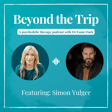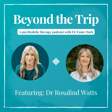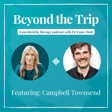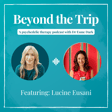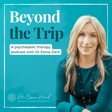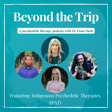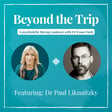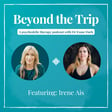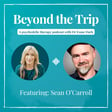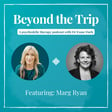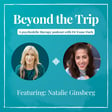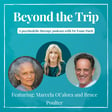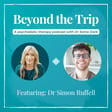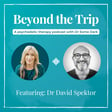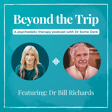
Sacred Roots: Right Relationship, Respect, and Psychedelic Healing
In this episode, I interview the team of Sacred Roots. They bring together Indigenous and non-Indigenous therapists and healers to bridge Indigenous wisdom and embodied practice into the growing field of clinical Psychedelic Assisted Therapy (PAT).
Through two-way learning, they hope to stimulate critical discussion, embodied practice and further research into this important field – for right relationship, respect, and the greatest possibility for our collective healing and wellbeing.
im joined by Dr. Carlie Atkinson – CEO of We Al-li, Associate Professor of Social Work (Melbourne University)
Jem Stone – Co-founder of IPAT (Indigenous Psychedelic Assisted Therapies), We Al-li Facilitator & Wayapa Wuurrk Lead Trainer
Kirt Mallie – Co-founder of IPAT, Psychedelic-Assisted Therapist, We Al-li Facilitator & Wayapa Wuurrk Trainer
Mei Lai Swan – Sacred Roots Co-ordinator, Embodied Nature Therapies & Yoga for Humankind, Social Worker, Somatic and Psychedelic-Assisted Therapist & Educator
We cover the following topics :
The philosophy of Sacred Roots
Founding and values of Sacred Roots
Indigenous cultural exchange in peru
Therapist Training
Impact of cultural exchange of therapists
Upcoming trip plans – taking group of PAT therapists to Peru
Where to find out more about this trip
Keep in touch with me at
YouTube: https://www.youtube.com/@BeyondtheTrippodcast
Insta: dresmedark
Linkedin: https://www.linkedin.com/in/dr-esme-dark-627156a0/
Website: https://www.esmedarkpsychology.com.au/
Disclaimer: This Podcast is for general information only and does noy constitute an endorsement or recommendation for psychedelic assisted psychotherapy
